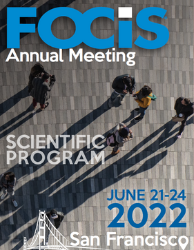Back
Elucidating Inflammation-induced Cell Fate Decisions in Primary Human Tregs
Thursday, June 23, 2022
3:30 PM – 3:45 PM PT
Location: Salons 5/6
Authors: Patrick Ho, Diabetes Center (Presenting Author) - University of California, San Francisco; Charlotte Monsour, Diabetes Center (Co-Author) - University of California, San Francisco; Jeffrey A. Bluestone, Diabetes Center (Co-Author) - University of California, San Francisco; Qizhi Tang, Department of Surgery, Diabetes Center (Co-Author) - University of California, San Francisco
- PH
Patrick Ho, PhD
University of California, San Francisco
San Francisco, California, United States - JV
Jo L. Viney, PhD
Chief Scientific Officer
Pandion Therapeutics
Watertown, Massachusetts, United States
Presenting Author(s)
Chair(s)
Adoptive regulatory T cell (Treg) therapy is an emerging therapeutic paradigm for promoting immune tolerance in transplant and autoimmune disease patients. However, accumulating evidence has exposed a susceptibility for murine Tregs to undergo epigenetic reprogramming within chronically inflamed tissue environments, resulting in acquisition of proinflammatory functions and the capacity to exacerbate tissue damage. Despite the safety implications of Treg lineage decommitment for cell therapy applications, inflammation-driven human Treg cell fate decisions remain poorly understood. Here, we investigate the stability of human Treg identity during chronic in vitro exposure to proinflammatory cytokines. Over the course of repeated anti-CD3/28 stimulations amid sustained IL6, IL1β, and IL23 exposure, primary human Tregs progressively downregulated FOXP3 and HELIOS, re-methylated the FOXP3 conserved non-coding sequence (CNS)2 enhancer region, lost in vitro suppressive function, and acquired proinflammatory cytokine expression. To gain insight into the gene regulatory networks driving Treg dysfunction, we used single-cell multiome (RNA + ATAC) sequencing to profile primary human Tregs maintained in the presence or absence of IL6, IL1β, and IL23. Unbiased clustering revealed a dysfunctional Treg population with an epigenetic signature characteristic of murine Treg to “exTreg” conversion, including altered chromatin accessibility at the IFNγ, IL17A, and FOXP3 CNS2 loci. Inference of transcription factor (TF)-associated chromatin accessibility indicated a key role for E26 transformation-specific (ETS) family members. Ongoing experiments involving CRISPR-mediated perturbations aim to dissect the roles of specific TFs in safeguarding or unraveling the Treg epigenome, enabling the development of strategies to ensure safe implementation of Treg therapies.

